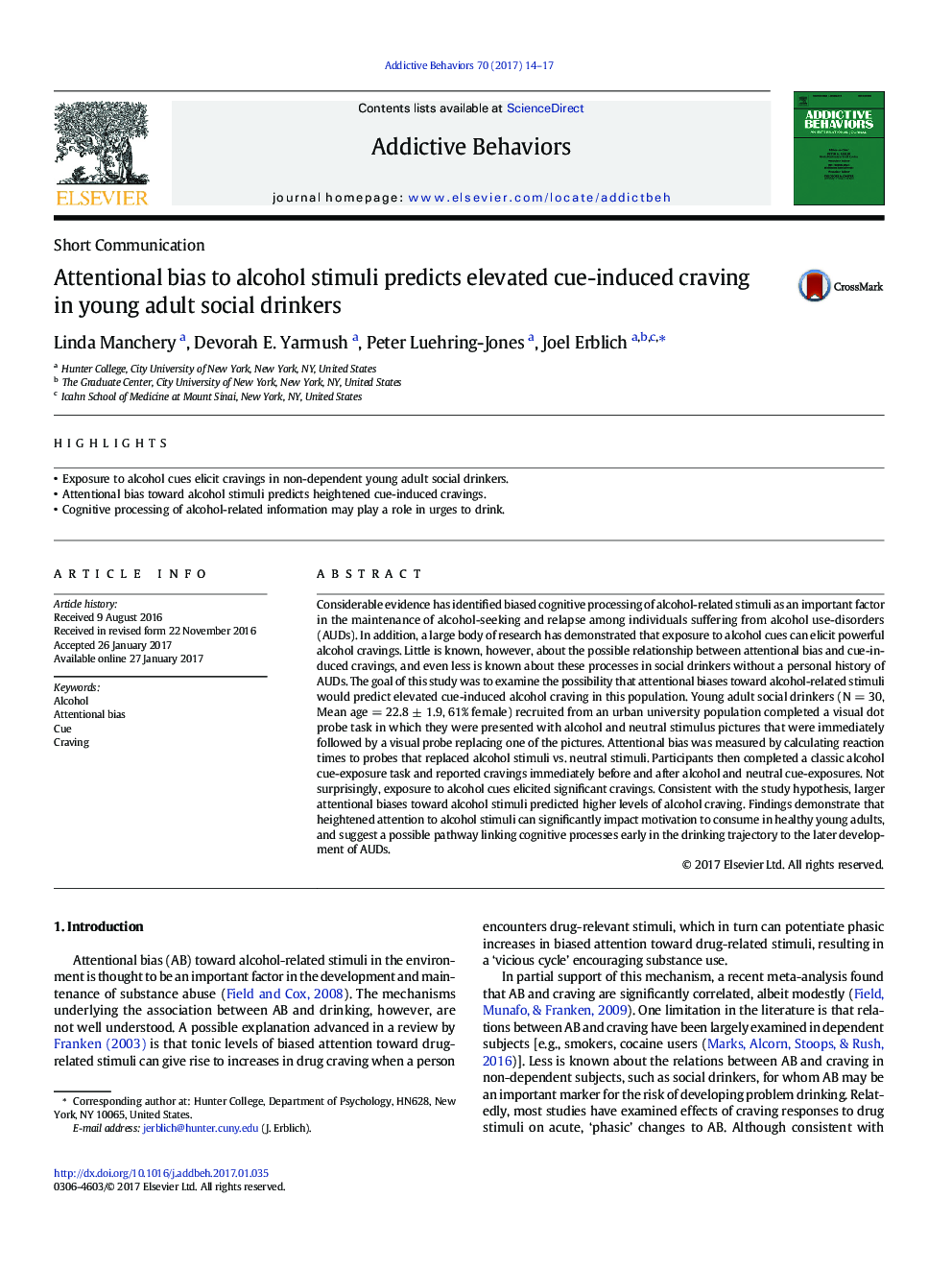| کد مقاله | کد نشریه | سال انتشار | مقاله انگلیسی | نسخه تمام متن |
|---|---|---|---|---|
| 5037822 | 1472501 | 2017 | 4 صفحه PDF | دانلود رایگان |
- Exposure to alcohol cues elicit cravings in non-dependent young adult social drinkers.
- Attentional bias toward alcohol stimuli predicts heightened cue-induced cravings.
- Cognitive processing of alcohol-related information may play a role in urges to drink.
Considerable evidence has identified biased cognitive processing of alcohol-related stimuli as an important factor in the maintenance of alcohol-seeking and relapse among individuals suffering from alcohol use-disorders (AUDs). In addition, a large body of research has demonstrated that exposure to alcohol cues can elicit powerful alcohol cravings. Little is known, however, about the possible relationship between attentional bias and cue-induced cravings, and even less is known about these processes in social drinkers without a personal history of AUDs. The goal of this study was to examine the possibility that attentional biases toward alcohol-related stimuli would predict elevated cue-induced alcohol craving in this population. Young adult social drinkers (N = 30, Mean age = 22.8 ± 1.9, 61% female) recruited from an urban university population completed a visual dot probe task in which they were presented with alcohol and neutral stimulus pictures that were immediately followed by a visual probe replacing one of the pictures. Attentional bias was measured by calculating reaction times to probes that replaced alcohol stimuli vs. neutral stimuli. Participants then completed a classic alcohol cue-exposure task and reported cravings immediately before and after alcohol and neutral cue-exposures. Not surprisingly, exposure to alcohol cues elicited significant cravings. Consistent with the study hypothesis, larger attentional biases toward alcohol stimuli predicted higher levels of alcohol craving. Findings demonstrate that heightened attention to alcohol stimuli can significantly impact motivation to consume in healthy young adults, and suggest a possible pathway linking cognitive processes early in the drinking trajectory to the later development of AUDs.
Journal: Addictive Behaviors - Volume 70, July 2017, Pages 14-17
